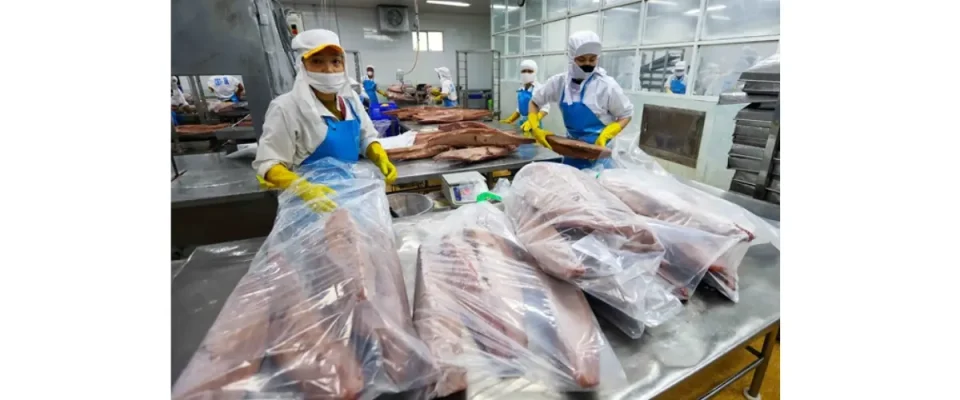Vietnam’s seafood industry is facing an unprecedented challenge as the US has declined to acknowledge Vietnam’s equivalence to 12 seafood harvesting methods under the Marine Mammal Protection Act (MMPA), which can cause a loss of half a billion dollars in annual exports.
The US National Oceanic and Atmospheric Administration (NOAA) has informed Vietnam’s Directorate of Fisheries on August 26 that imports from the affected fisheries will be banned from ,2026.
The decision targets fishing methods including gillnetting, purse seining, trawling, and handlining, deemed to pose high risks to dolphins, whales and other marine mammals. The decision will affect key export products such as tuna, mackerel, lobster, crab, squid, grouper, swordfish, snapper, mullet, billfish and flounder, according to the Vietnam Association of Seafood Exporters and Producers (VASEP).
This decision is rocking the seafood industry, which could cost Vietnam around $500 million a year, the association estimated. Tuna will be the most affected because it is Vietnam’s largest seafood export to the US, with a revenue of $387 billion out of Vietnam’s total tuna export of $1 billion last year.
This decision is not only threatening export revenues but also the livelihoods of thousands of fishermen and workers, VASEP said, warning that Vietnam now faces a double disadvantage compared with competitors such as Thailand, India and Japan, which receive acknowledgement of full equivalence, meaning full US market access.
News Courtesy : Nationthailand


